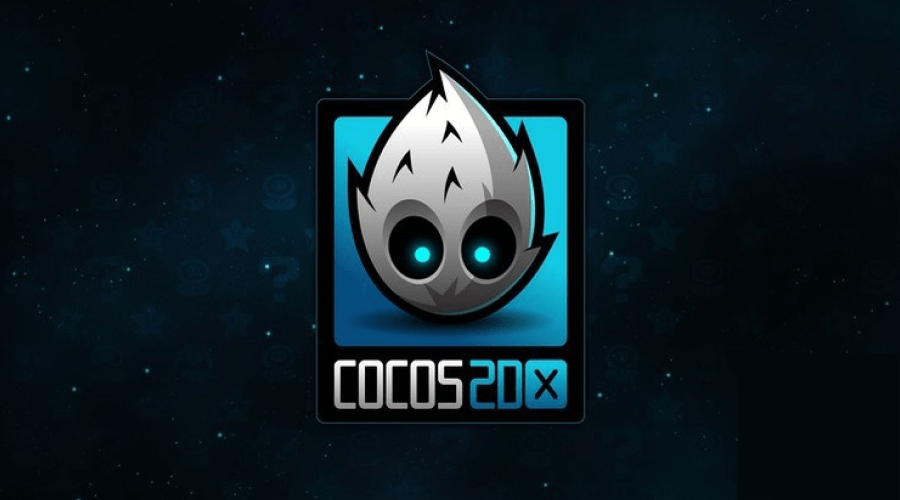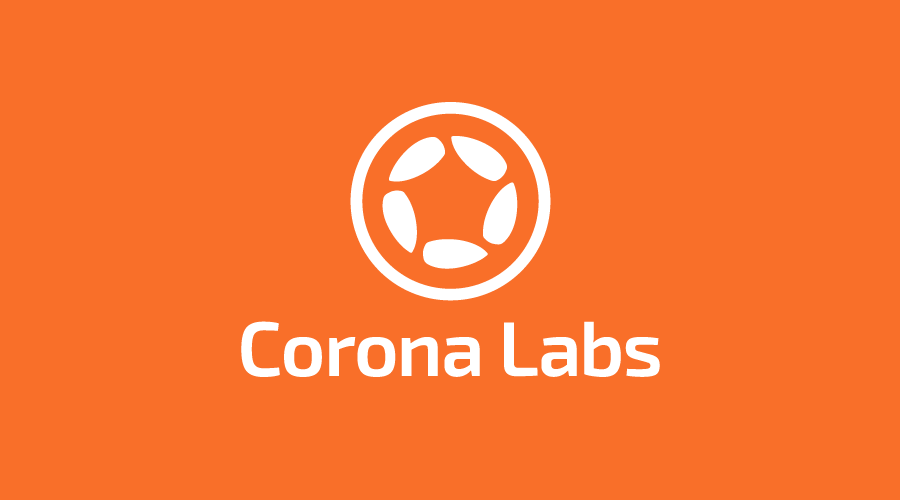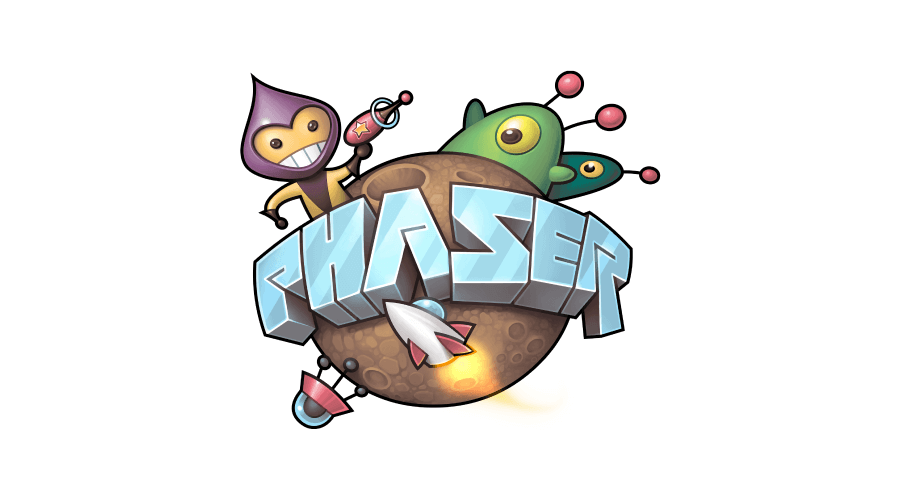
Introduction
Embarking on the vibrant game development journey for Android in 2026 demands skill and the right toolset to bring imaginative worlds to life. As mobile gaming evolves, so does the need for robust and innovative Android mobile game engine that empower Android developers.
Picture the exhilaration of crafting immersive experiences that captivate millions of Android users worldwide. To achieve excellence, choosing a right mobile game engine becomes pivotal.
Join us as we navigate through the dynamic landscape of game development, exploring the seven best mobile game engines for Android, each a gateway to unlocking creativity and pushing the boundaries of gaming in the palm of your hand.
What is a Mobile Gaming Engine?
A mobile gaming engine is the wizard behind the screen, conjuring the enchantment that turns imagination into interactive reality. Beyond the intricate lines of code, it’s a storyteller weaving narratives through digital landscapes. Picture it as a creative partner, translating a developer’s vision into playable wonders.
With each pixel and algorithm, a gaming engine shapes the physics, graphics, and mechanics that breathe life into virtual worlds. It’s the unseen maestro orchestrating the symphony of gaming, turning every click and keystroke into a thrilling adventure. A mobile game engine is the magic wand that transforms concepts into a mesmerizing tapestry of interactive experiences.
What is the process of Game Development?
Game development is a thrilling journey akin to crafting a captivating tale. In the beginning, there is only an idea, a concept that dances in a developer’s mind. Next comes the blueprint phase, where the game’s structure takes shape, akin to drafting a novel’s plot. Artists breathe life into characters, akin to characters leaping off the pages.
Programmers infuse functionality akin to scripting the story’s progression. Testing mirrors proofreading, ensuring a seamless narrative. Finally, launch day is the grand unveiling, like a book hitting the shelves—this fusion of creativity and technical prowess births not just games but immersive stories waiting to be explored.
7 Best Mobile Game Engines for Android
Here are the top 7 Android Mobile Game Engine
1. Unity

In the vast realm of game development, Unity Android mobile game engine stands tall as a colossus, reigning supreme with its versatile prowess. Let’s delve into why Unity is the undisputed titan in the game development market, exploring its Android-centric features and highlighting a few stellar games that owe their success to Unity’s innovative backbone.
Overview:
- Unity’s dominance in the game development market is unparalleled, embraced by indie developers and major studios.
- Renowned for its flexibility, Unity caters to both 2D and 3D game development, fostering creativity across diverse genres.
Features and Capabilities for Android:
- Cross-Platform Development: Unity simplifies the simultaneous creation of games for Android and other platforms.
- Optimized Performance: With a focus on efficiency, Unity ensures smooth gameplay experiences on various Android devices.
- Asset Store: Accessible resources through Unity’s Asset Store enhance the development process, offering many tools and assets.
Pros:
- Community Support: Unity boasts an expansive community, providing a wealth of tutorials, forums, and shared knowledge.
- Ease of Use: Its drag-and-drop interface and user-friendly interface make Unity accessible to developers of varying expertise.
- Rich Graphics: Unity’s rendering capabilities deliver stunning visuals, contributing to the success of graphically intensive games.
Cons:
- Costs for Advanced Features: While Unity is free, advanced features may require a subscription, potentially impacting smaller developers.
- Learning Curve: Even with its easy-to-use interface, mastering Unity’s full potential may pose a learning curve for newcomers.
Showcase of Successful Games Developed with Unity for Android:
- Monument Valley
- Angry Birds 2
- Alto’s Adventure
Pricing:
- Personal – free
- Plus – $399 /yr per seat
- Pro – $1,800 /yr per seat
- Enterprise – $4,000 /mo per 20 seats
With its dynamic features and vast community, Unity continues to shape the gaming landscape, proving indispensable for developers aiming to conquer the Android frontier. It’s one of the best Android mobile game engine.
2. Unreal Engine

Enter the realm of Unreal Engine, a virtual maestro renowned for orchestrating high-end graphics and unparalleled realism in the game development arena. Dive into the specifics of Unreal Android mobile game engine’s prowess, explore tailored tools and features, and unravel the success stories of notable Android games shaped by its visionary capabilities.
Overview:
- Unreal Engine commands awe with its industry-leading graphics, setting standards for realism in gaming.
- Widely adopted across various platforms, Unreal Engine’s robust capabilities extend to Android, offering a seamless transition for developers.
Features and Android-Specific Tools:
- Visual Fidelity: Unreal Engine’s cutting-edge rendering ensures breathtaking visuals, pushing the boundaries of graphical excellence.
- Blueprint Visual Scripting: Streamlining development, this feature aids both seasoned developers and those new to coding.
- Android Performance Profiling: Tailored tools for Android facilitate optimal performance across a spectrum of devices.
Pros:
- Graphics Prowess: Unreal Engine’s forte lies in delivering top-tier graphics, a crucial factor for visually immersive gaming experiences.
- Cross-Platform Functionality: Seamless deployment across multiple platforms, including Android, broadens a game’s potential audience.
- Robust Community: An engaged and supportive community enhances the learning curve, providing ample resources and assistance.
Cons:
- Learning Curve: Unreal Engine’s advanced features may challenge beginners, requiring a steeper learning curve.
- Resource Intensity: High-end graphics come at a cost; resource-intensive games may not be suitable for all Android devices.
- Costs for Commercial Use: While free for personal use, commercial ventures may incur licensing fees.
Case Studies of Notable Android Games:
- PUBG Mobile: Leveraging Unreal Engine’s graphics prowess for a console-like experience on mobile.
- Fortnite: A prime example of Unreal Engine’s adaptability, delivering a visually stunning and engaging battle royale on Android.
- Genshin Impact: This action RPG showcases Unreal Engine’s capacity for creating expansive, visually rich open worlds on Android devices.
Pricing:
- Free publishing and creators’ licenses
- Custom license to a custom price
- Enterprise program for $1.000 per seat/year
Unreal Engine, a beacon of graphical excellence, continues redefining the boundaries of Android gaming, empowering developers to craft visually stunning and immersive experiences for a global audience. It’s one of the Android mobile game engine.
3. Godot Engine

Step into Godot Engine, an open-source marvel that empowers game developers with its unique blend of versatility and community-driven support. Unveil the advantages of Godot’s open-source nature, explore its Android export capabilities, and delve into the user-friendly interface designed to simplify game development.
Overview:
- Godot Engine is a beacon of open-source ingenuity, fostering collaboration and innovation among game developers.
- Designed to cater to both 2D and 3D game development, Godot’s accessibility and community support make it an enticing choice for creators.
Open-Source Advantages and Community Support:
- Collaborative Development: Godot’s open-source nature encourages a collaborative environment where developers worldwide contribute to its evolution.
- Community-Driven: A vibrant and supportive community that offers tutorials, forums, and resources, aiding beginners and seasoned developers.
Android Export Capabilities and Performance Optimizations:
- Efficient Android Export: Godot simplifies the export process, ensuring seamless deployment of games on the Android platform.
- Performance Optimization: Tools within Godot allow developers to optimize games for Android devices, ensuring smooth gameplay experiences.
User-Friendly Interface and Scripting Languages:
- Intuitive Interface: Godot’s user-friendly interface caters to developers of all levels, fostering a comfortable environment for creation.
- Flexible Scripting Languages: Supporting GDScript and other languages like C#, Godot accommodates various developer preferences for Android game development.
Pros:
- Open Source: Godot is entirely free and open-source, making it an attractive choice for budget-conscious developers.
- Cross-Platform Development: With export options for multiple platforms, Godot facilitates the creation of games for diverse audiences.
- Lightweight: Godot’s minimalistic design ensures a relatively small engine size, ideal for projects with limited storage requirements.
Cons:
- Smaller Community Compared to Giants: While supportive, Godot’s community might need to match the scale of larger engines like Unity or Unreal Engine.
- Learning Curve: Although user-friendly, mastering all features may take time, particularly for developers new to game development.
Pricing: Free
Godot Engine, a champion of open-source ideals, beckons game developers to explore creativity, offering a robust platform with the tools needed to bring Android games to life. It’s one of the best Android mobile game engine.
4. Cocos2d-x

Embark on a journey with Cocos2d-x, a powerhouse in game development revered for its cross-platform prowess and dedication to 2D game perfection. Uncover the seamless integration with Android, explore the efficiency in 2D game development, and discover a showcase of notable games that owe their success to Cocos2d-x.
Overview:
- Cocos2d-x is a testament to streamlined 2D game development, emphasizing performance without compromising flexibility.
- Renowned for its cross-platform capabilities, Cocos2d-x allows developers to craft games that seamlessly traverse various operating systems, focusing on Android.
Cross-Platform Capabilities and Android Integration:
- Versatile Platform Compatibility: Cocos2d-x supports a range of platforms, ensuring that the games developed can effortlessly run on Android and beyond.
- Tailored Android Integration: Specific tools within Cocos2d-x simplify developing and optimizing games for the Android ecosystem.
2D Game Development Focus and Efficient Performance:
- 2D-Centric Design: Cocos2d-x caters predominantly to 2D game development, offering a specialized environment for creators immersed in two-dimensional gaming.
- Optimized Performance: The engine is engineered for efficient performance, ensuring smooth gameplay experiences for 2D games on various Android devices.
Pros:
- Lightweight and Fast: Cocos2d-x’s lightweight design contributes to fast performance, which is ideal for 2D games on mobile devices.
- Active Community: The engine boasts a supportive community, providing resources and assistance for developers navigating its features.
- Open Source: Cocos2d-x is open-source, fostering a collaborative environment for continual improvement.
Cons:
- Learning Curve: While efficient, mastering Cocos2d-x may pose a learning curve for newcomers to game development.
- Primarily 2D-Focused: Developers seeking robust 3D capabilities may find Cocos2d-x less suitable for their projects.
Pricing: Free
Cocos2d-x, a champion of 2D game development, beckons creators to forge captivating experiences for Android users, providing a platform that combines efficiency, flexibility, and a rich history of successful titles.
5. Corona SDK

Embarking on the journey of mobile game development becomes a seamless and efficient endeavor with Corona SDK. This powerful tool is celebrated for its quick development capabilities, the prowess of the Lua scripting language, and a host of Android-specific features. Join us as we delve into the world of Corona SDK, exploring its features, advantages, and success stories on the Android platform.
Overview:
- Corona SDK is a beacon for developers seeking swift game development and prototyping, leveraging the simplicity and power of the Lua scripting language.
- Tailored for beginners and seasoned developers, Corona SDK facilitates rapid creation without compromising performance or functionality.
Quick Development and Prototyping with Lua Scripting Language:
- Lua Scripting Language: Corona SDK employs Lua, offering a lightweight and versatile scripting language that accelerates development.
- Rapid Prototyping: The engine’s design encourages quick prototyping, enabling developers to iterate swiftly on game concepts.
Android-Specific Features and Plugins:
- Native Android Features: Corona SDK seamlessly integrates with Android, tapping into native features to enhance the gaming experience.
- Plugins for Extended Functionality: A robust library of plugins expands Corona SDK’s capabilities, allowing developers to integrate diverse features effortlessly.
Success Stories of Games Powered by Corona SDK on Android:
The Lost City: This critically acclaimed puzzle-adventure game is a testament to Corona SDK’s versatility in crafting immersive narratives on the Android platform.
Pros:
- Quick Learning Curve: Corona SDK’s simplicity ensures a quick learning curve, making it accessible for developers of varying expertise.
- Cross-Platform Development: Compatible with iOS and Android, Corona SDK facilitates the creation of games with broad market reach.
- Active Community Support: A vibrant community provides resources, forums, and assistance, contributing to a collaborative environment.
Cons:
- Limited 3D Capabilities: Corona SDK is primarily designed for 2D game development, which may limit its suitability for developers focused on complex 3D projects.
- Dependency on Lua: While Lua is versatile, developers accustomed to other scripting languages may need time to adapt.
Pricing: Free
Corona SDK emerges as a dynamic force, empowering developers to swiftly realize their game development visions on the Android platform with efficiency, versatility, and a rich collection of success stories.
6. LibGDX

Embarking on the expansive landscape of Android game development is an exhilarating endeavor, and at the forefront of this adventure stands LibGDX. Fueled by the versatility of Java, LibGDX offers a robust framework, multi-platform support, and stellar performance optimization. Join us as we unravel the dynamic features, explore its advantages, and showcase the prowess of popular Android games crafted with LibGDX.
Overview:
- LibGDX stands as a Java-based powerhouse explicitly tailored for Android game development.
- Renowned for its cross-platform capabilities, LibGDX empowers developers to create games seamlessly transitioning across various operating systems.
Java-Based Framework for Android Game Development:
- Versatility of Java: Leveraging Java simplifies the development process, making LibGDX accessible for developers familiar with the language.
- Android Integration: LibGDX is finely tuned for Android, offering native-like experiences on the platform.
Multi-Platform Support and Performance Optimization:
- Cross-Platform Compatibility: LibGDX excels in multi-platform support, ensuring games can reach a diverse audience beyond Android.
- Performance Optimization: The framework is designed for efficient performance, providing smooth gameplay experiences across a spectrum of Android devices.
Showcase of Popular Android Games Built with LibGDX:
- Flappy Bird Clone: A testament to LibGDX’s flexibility, this popular clone showcases the framework’s adaptability to various game genres.
- Skymap Games’ Titles: Games like “Cordy” and “Sleepy Jack” exemplify the success of LibGDX in delivering engaging experiences on the Android platform.
Pros:
- Open Source: LibGDX is open-source, fostering collaboration and a supportive community.
- Rich Documentation: Extensive documentation aids developers in navigating the framework’s features.
- Active Community: A dedicated community provides forums, tutorials, and shared knowledge.
Cons:
- Learning Curve: While versatile, mastering all aspects of LibGDX may pose a learning curve, especially for beginners.
- Limited Visual Development Tools: Compared to other engines, LibGDX may be perceived as needing more visual development tools.
Pricing: Free
LibGDX, a Java-based gem, empowers developers to craft captivating Android games easily. Its multi-platform support, coupled with stellar performance optimization, positions it as a dynamic force in the ever-evolving world of game development.
7. Phaser

Enter the world of Phaser, an HTML5-based game engine that transcends boundaries, bringing the magic of game development to Android with its lightweight design and user-friendly approach. Discover the simplicity of 2D game creation and explore successful Android games that owe their charm to Phaser’s dynamic capabilities.
Overview:
- Phaser, an HTML5-based game engine, redefines game development simplicity, particularly for the Android platform.
- Focused on 2D game development, Phaser’s lightweight architecture makes it an accessible choice for developers seeking efficiency.
HTML5-Based Game Engine Suitable for Android:
- Cross-Platform HTML5: Phaser leverages HTML5, ensuring seamless integration with Android and other platforms.
- Browser Compatibility: Games created with Phaser can be easily played on Android devices through web browsers, enhancing accessibility.
Lightweight and Easy-to-Use for 2D Game Development:
- Minimalistic Design: Phaser’s lightweight design streamlines the development process, making it an ideal choice for 2D game projects.
- User-Friendly Interface: Focusing on simplicity, Phaser caters to both beginners and seasoned developers, fostering a comfortable development environment.
Pros:
- Ease of Learning: Phaser’s user-friendly design ensures a gentle learning curve, making it accessible for developers of various skill levels.
- Open Source: Phaser encourages collaboration and community support as an open-source engine.
- Vast Community: A dedicated community provides ample resources, tutorials, and shared knowledge.
Cons:
- Limited 3D Capabilities: Phaser is predominantly tailored for 2D game development, which may limit its suitability for developers focused on 3D projects.
- Dependency on Web Browsers: Phaser’s HTML5 foundation ties it to web browsers, which may present limitations compared to native applications.
Pricing:
- Free
- It also sells separate plugins
Phaser emerges as a dynamic force in Android game development, providing a platform where simplicity meets innovation. Its lightweight design and HTML5 foundation offer developers a canvas to weave engaging 2D experiences, fostering a vibrant community dedicated to pushing the boundaries of game creation.
Conclusion
In the ever-evolving landscape of mobile game development, the seven engines we’ve explored are not just tools but gateways to boundless creativity. Whether navigating Unity’s expansive universe, harnessing Unreal Engine’s graphical prowess, or immersing in the simplicity of Phaser, each mobile gaming engine carries a unique charm.
As developers embark on their quests, these engines become companions, translating imagination into interactive wonders. The future of Android gaming in 2026 lies in the hands of those wielding Unity, Unreal Engine, Godot, Cocos2d-x, Corona SDK, LibGDX, and Phaser, promising not just games but captivating narratives etched in the hearts of players worldwide.






